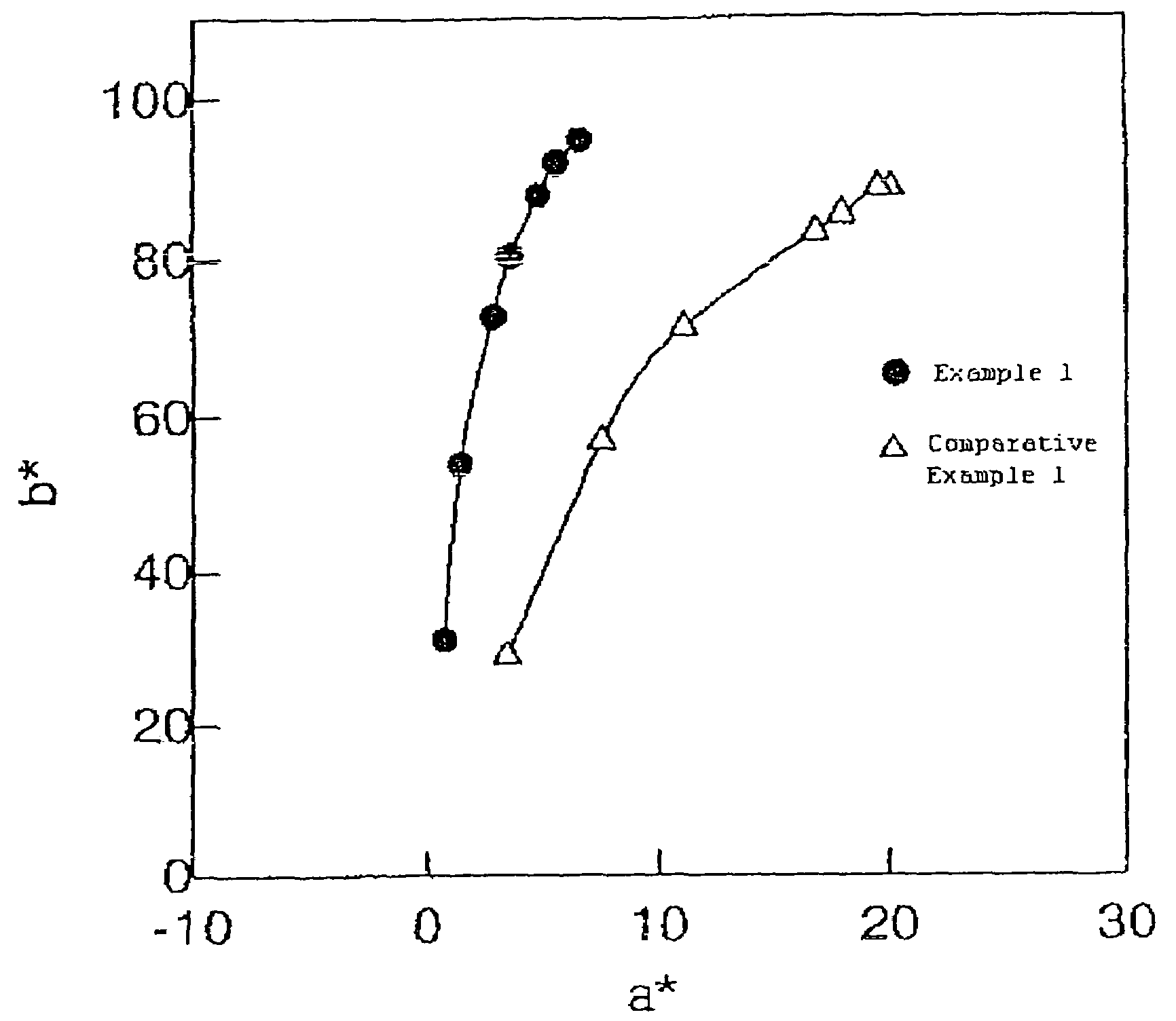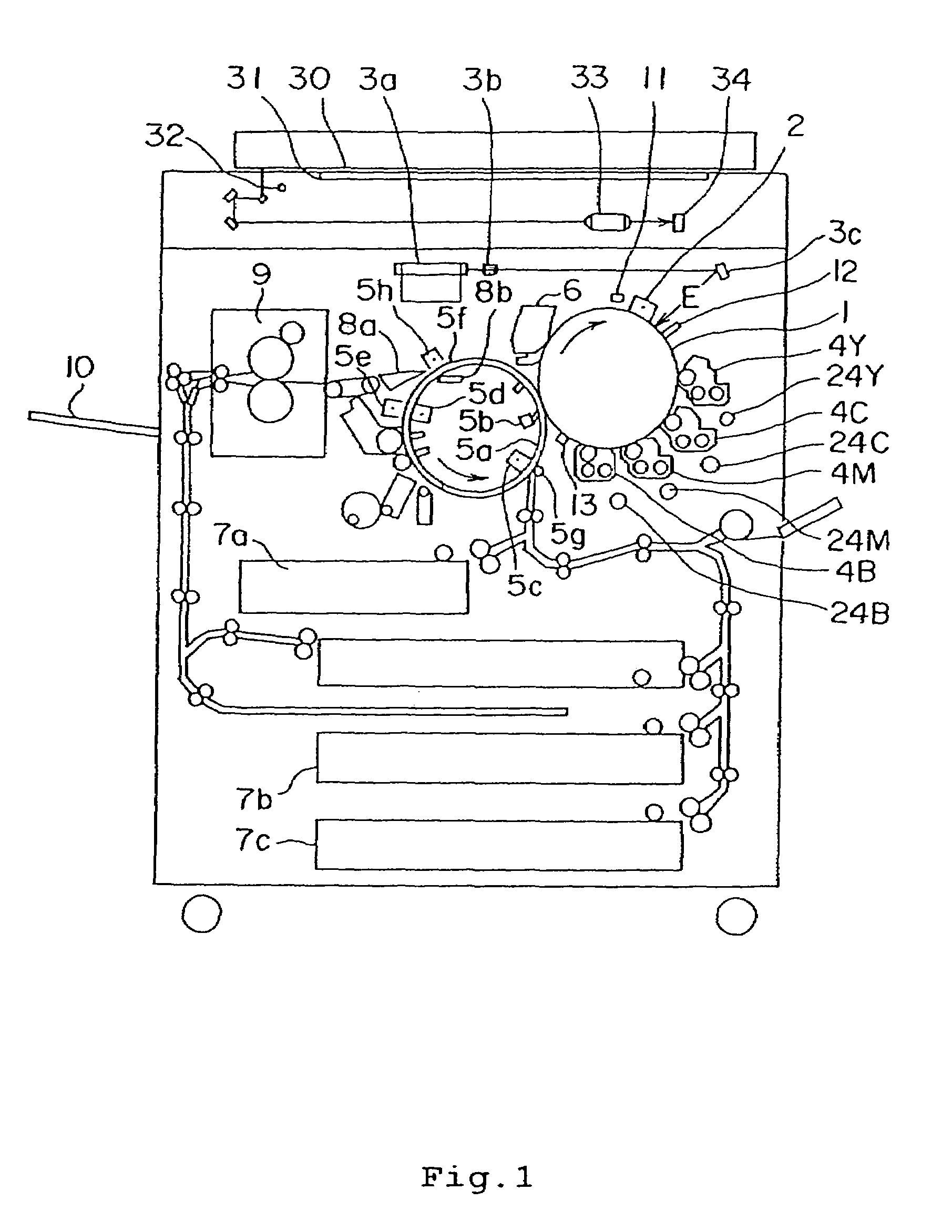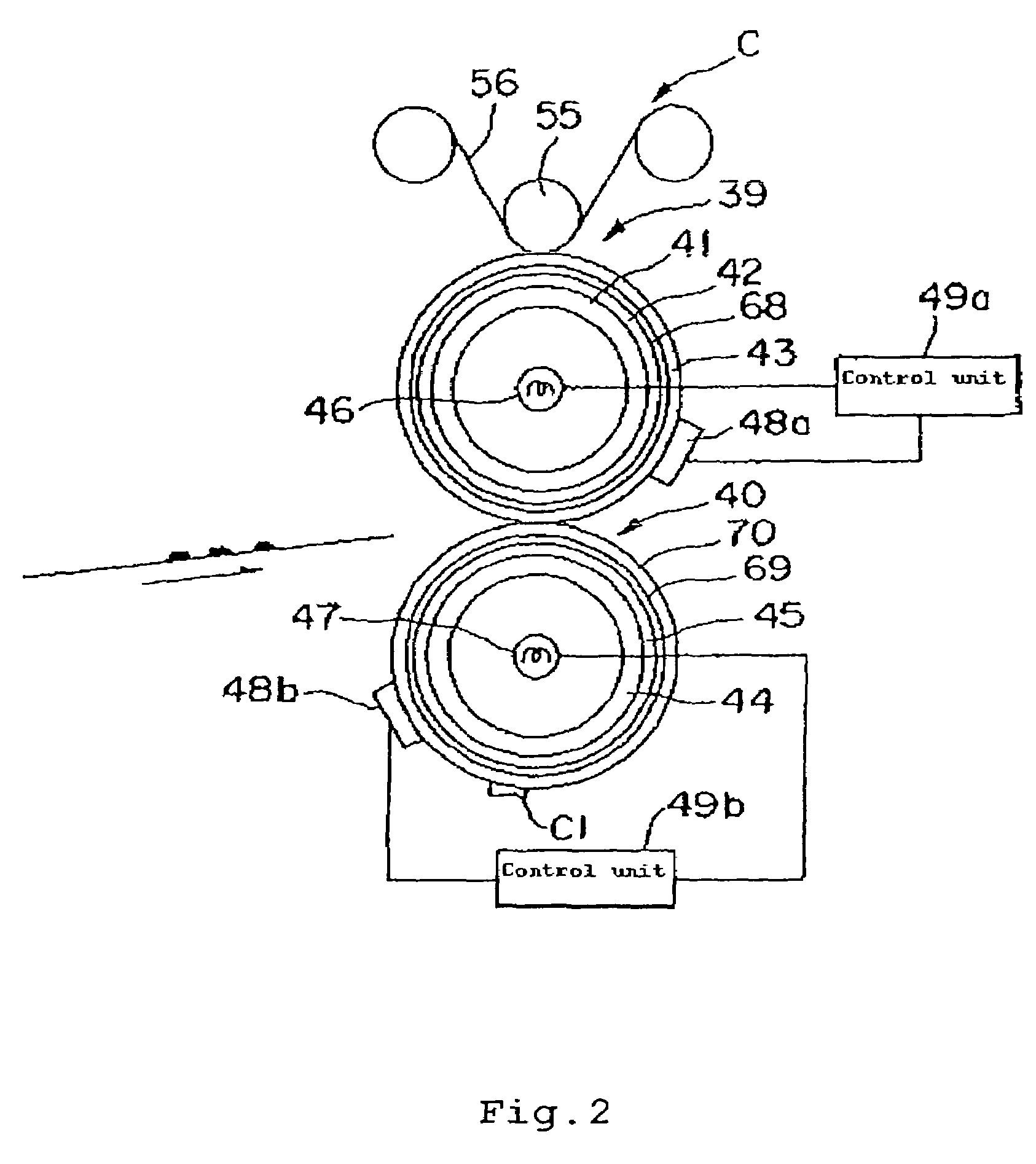Yellow toner
a yellow pigment and toner technology, applied in the field of toner, can solve the problems of insufficient toner color tint, unsatisfactory light resistance, and inability to achieve excellent color tint, and achieve satisfactory light resistance. , the effect of satisfactory color tin
- Summary
- Abstract
- Description
- Claims
- Application Information
AI Technical Summary
Benefits of technology
Problems solved by technology
Method used
Image
Examples
example 1
[0212]In a four-neck flask made of glass, 30 parts of polyoxyethylene (2.2)-2,2-bis(4-hydroxyphenyl)propane, 33 parts of polyoxypropylene(2.2)-2,2-bis(4-hydroxyphenyl) propane, 21 parts of terephthalic acid, 3 parts of fumaric acid, 1 part of trimellitic acid, 12 parts of dodecenylsuccinic acid, and 0.1 part of dibutyltin oxide were added. Then, a thermometer, a stirring rod, and a condenser were attached on the four-neck flask. The flask was then placed in a mantle heater. While stirring a solution in the flask, the solution was gradually heated to allow a reaction at 200° C. for 6 hours. Accordingly, an unsaturated polyester resin (A) (peak molecular weight: 8,700, Mw / Mn=3.6, Tg: 62° C., and acid value: 6 mgKOH / g) was obtained.
[0213]70 parts of the above polyester resin (A) and 200 parts of xylene were supplied to a reaction container comprising a reflux condenser, an agitator, a thermometer, a nitrogen gas in-take tube, a dropping device, and a pressure-reducing device and heated...
example 2
[0232]A yellow toner (2) was obtained in the same manner as that of Example 1, except that the polyester resin (A) was used instead of the hybrid resin composition (A). The physical properties of the yellow toner (2) are shown in Table 3, and the results evaluated in the same manner as that of Example 1 are shown in Table 4.
example 3
[0233]In a four-neck flask made of glass, 33 parts of polyoxypropylene(2.2)-2,2-bis(4-hydroxyphenyl)propane, 21 parts of terephthalic acid, 6 parts of isophthalic acid, 8 parts of fumaric acid, 1 part of trimellitic acid, and 0.1 part of dibutyltin oxide were added. Then, a thermometer, a stirring rod, and a condenser were attached to the four-neck flask, and the flask was then placed in a mantle heater. While stirring a solution in the flask, the solution was gradually heated to allow a reaction at 200° C. for 6 hours. Accordingly, a polyester resin (B) (peak molecular weight: 10,500, Mw / Mn=26, Tg: 67° C., and acid value: 4 mgKOH / g) was obtained.
[0234]A yellow toner (3) was obtained in the same manner as that of Example 1, except that the polyester resin (B) was used instead of the hybridres in composition (A). The results of the yellow toner (3) evaluated in the same manner as that of Example 1 are shown in Tables 3 and 4.
PUM
| Property | Measurement | Unit |
|---|---|---|
| molecular weight | aaaaa | aaaaa |
| molecular weight | aaaaa | aaaaa |
| molecular weight | aaaaa | aaaaa |
Abstract
Description
Claims
Application Information
 Login to View More
Login to View More - R&D
- Intellectual Property
- Life Sciences
- Materials
- Tech Scout
- Unparalleled Data Quality
- Higher Quality Content
- 60% Fewer Hallucinations
Browse by: Latest US Patents, China's latest patents, Technical Efficacy Thesaurus, Application Domain, Technology Topic, Popular Technical Reports.
© 2025 PatSnap. All rights reserved.Legal|Privacy policy|Modern Slavery Act Transparency Statement|Sitemap|About US| Contact US: help@patsnap.com



